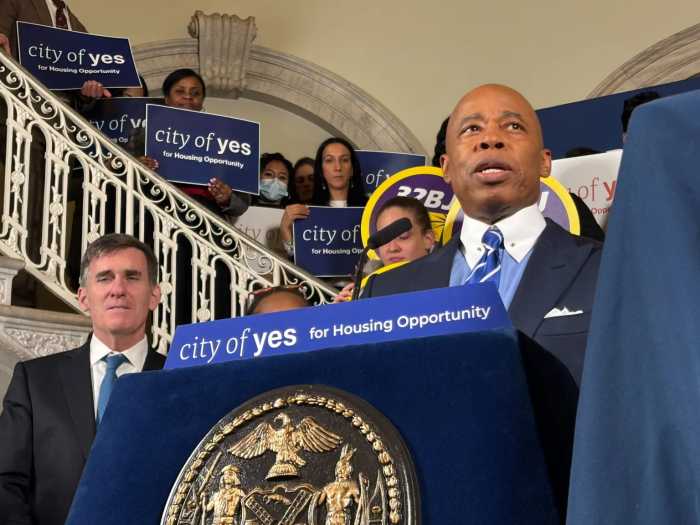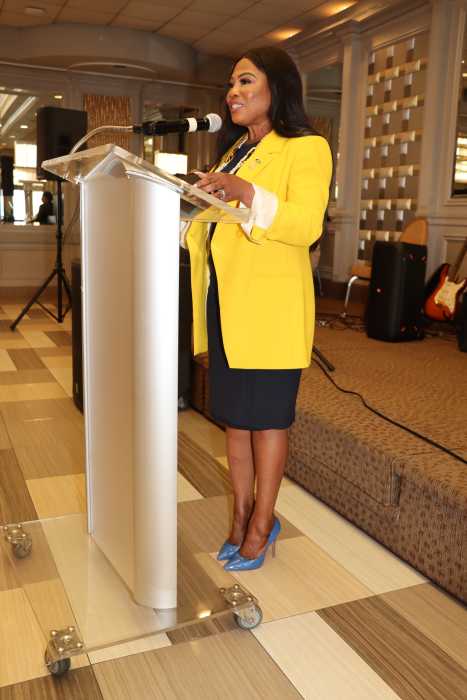 In October 2003, Michael Glatze, then 28, sat in Manhattan's Union Square Virgin Megastore, enthusiastically explaining Young Gay America, the organization he helped launch with a mission to “save lives by educating and informing queer youth about their importance to society.”
In October 2003, Michael Glatze, then 28, sat in Manhattan's Union Square Virgin Megastore, enthusiastically explaining Young Gay America, the organization he helped launch with a mission to “save lives by educating and informing queer youth about their importance to society.”
With his co-founder and boyfriend Benjie Nycum, Glatze had made an award-winning film and launched a Web site, both of which enabled queer youth across the U.S. to tell their stories. They would later start a magazine bearing the group's name.
But, the heart of Young Gay America was a series of five, two-week road trips Glatze, Nycum, and several others took across the U.S. and Canada, in which they met with scores of queer youth, almost all of them remote from major urban areas. Detailed interviews and photos from those encounters were posted on the group's Web site, and served as the model for the stories other youths submitted themselves.
In a tribute of sorts to their efforts, a right-wing Christian group named younggayamerica.com one of the nation's “Ten Most Dangerous Websites.”
Glatze and Nycum met working at XY magazine in San Francisco, but hoped to move beyond that publication's slick appeal to urban gay youth, and reach LGBT young people in small town America who had the least resources and support.
“I'm talking about the ones who are not going to send us e-mail,” Glatze said of those most isolated and in need of outreach. “They are not going to show up at the doorstep of a halfway house or a home. They are not going to e-mail anyone. They are stuck.”
The Michael Glatze who devoted his life's work to help those gay youth is no more.
At some point in the past three years, he had “a born-again experience,” which he announced to the world in a July 3 confessional on WorldNetDaily.com, a Christian-right Web site that has long been a forum for extreme anti-gay views.
In a 90-minute telephone interview with Gay City News the evening of July 9, Glatze talked in detail about the crisis he said led to his Christian rebirth, how that experience motivated him to reject his self-identification as a gay man, his feelings of “repulsion” at the thought of sex with another man, and his conclusion that his work at Young Gay America was all about “peddling homosexuality to youth.”
But Glatze's story is not simply one of rejecting his own homosexuality. It is also about the mission he feels today – one he termed “evangelical” – to alert society that “the homosexual mindset is that they always want to find more homosexuals.”
Most startlingly, Glatze said that America needs to “examine whether homosexuality should be legal” or if gay sex should instead be punished by “imprisonment.”
It is of course child's play to point out the contradictions across the board between the Michael Glatze of 2003 and the 2007 model. If he were running for public office, the flip flops held up by opponents at his rallies would be enormous.
Yet in spite of his apparent candor in the July 9 telephone interview, it is difficult to discern precisely what took place during a three-year process that he terms a spiritual awakening but many in the LGBT community would likely conclude must have been a psychological meltdown.
What is striking is the similarity between the style in which Glatze presented himself four years ago and how he sounded this week. He remains impressively articulate, precise in his choice of words, passionate, amiable, even gentle, despite his harsh words about what he calls the “false gay identity.”
In fact, he emphasized not the discontinuity apparent to almost everyone else, but instead the seamlessness of his transformation.
“This is a fruition of all that I have believed in my life,” Glatze said of his current thinking on God and homosexuality.
He explained that his rethinking began with an unexplained illness he feared might be the same heart condition that killed his father suddenly when Glatze was only 13.
Curiously, though, it was disillusionment with his father, even as a young boy, that he said led to his embrace of “the gay identity” as a teenager. His father flagrantly cheated on his mother, Glatze said, and as a boy he became her comforter and protector, and also vowed to never hurt a woman in the same way.
By the time of his father's death, Glatze was experiencing his burgeoning sexuality, but he claims that energy was free-floating, “not focused on any object.” It was only when a friend told him at age 14 about people who live their lives as gay that he connected his feelings to same-sex desire.
“I was already shy and introverted,” he said. “I thought, 'Well, that's what I am.' It sealed my fate. I wanted that masculinity and my sexuality was there. And it crystallized into gay identity.”
In a WorldNetDaily.com posting accompanying his essay, Glatze was quoted referring to his “darkest days of late-night parties, substance abuse, and all kinds of things when I felt like, 'Why am I here, what am I doing?'” Even then, he said, “There was always a voice there.”
But in this week's interview, he conceded that was a reference to years earlier when he was a raver in San Francisco, before he and Nycum moved to Halifax, Nova Scotia, where his ex-partner's family lives. The voice Glatze says he heard didn't fully reveal itself until his health scare passed and he said, “'Thank God,' and it was the first time the word God made sense to me.”
What resulted he said was “freedom.” Studying the Bible, “came to open my mind to ideas I had not looked at before… I was making peace with my God instead of him being my enemy.”
As a result, he explained, “I was seeing how powerful sexuality was and that I should not take it flippantly.”
Michael Glatze and Benjie Nycum in 2003.
Yet Glatze and Nycum were in a long-term relationship, and though he would not discuss their intimate life and whether they were monogamous, he acknowledged that he loved Benjie and that their union was, in his view, “divinely inspired.”
So what was flippant about that love?
“In the homosexual desire, there is a craving that has a sense of need and along with it the sense that we are doing something wrong,” Glatze responded. “That comes from the knowledge of right and wrong and of life. That is different from what I am calling a normal relationship.”
The potential for procreation is critical in appropriate sexual relationships, Glatze now believes.
“If I tried to have sex with a guy, it would steal his sexuality,” he argued. “We have within us the power and important ability to create life.”
Asked about all the heterosexual coupling that has nothing to do with procreation, Glatze conceded that there is considerable “lust-based” straight sex. He was not able, however, to articulate precisely why then his new Christian right allies focus their ire so disproportionately on homosexuality.
His experience is his past homosexuality, Glatze said. “I can only tell my own story.”
Glatze's decision to speak out after several years of evolution in his beliefs was, he said, “The obvious thing. I had already come to the conclusion that not everyone who has same-sex desires has to have a gay identity. I got rid of both and I felt more true to myself. Anyone else could do it.”
But Glatze is interested in more than simply spreading the good news of his rebirth. He warns that homosexuality and heterosexuality cannot co-exist.
“The more homosexuality is accepted, the more homosexuals there are,” he said. “The more we perpetuate the gay identity to children, the more homosexuals there are. The homosexual mindset is that they always want to find more homosexuals.”
Asked to explain a statement at the core of traditional right-wing fear-mongering regarding homosexuality's threat to children, Glatze mentioned what he said was a common gay fantasy about seducing straight men, and his own determination as a younger man to “queer up the world.”
Speaking of his youthful embrace of his homosexuality, Glatze asserted, “If it was a world where no gay identity existed and if you had same-sex behavior punished, then a) I would not have done it, b) I would not have had a gay identity that does not exist, and c) I would have seen myself as a normal heterosexual and sought the help of the numerous support groups to deal with my feelings.”
In mentioning the criminalization of gay sex, Glatze amended his choice of words from “imprisonment” to “punishment” and then emphasized that he was not endorsing the idea, but only saying that America needed to discuss the question – that is, whether the freedom from homosexual life that he has found might need to be enforced on others.
As for his success in dealing with his now-troublesome homosexual feelings, Glatze said the idea of having sex with a man makes him sick, and that he is attracted to women. Still, he acknowledged, “I lived with the habits for so long, there are times when I can see habitual reactions. Something you might have looked at all your life, you can see yourself notice it, but it does not have the same result in terms of desire. I don't crave or want anymore.”
His attraction to women has not led him into a relationship, and Glatze emphasized he is not interested in any “lust-based sex.” Asked how he will be drawn into a sexual relationship with a woman without lust, he responded, “It's part of the great mystery of life,” and said that through prayer he had learned from God that a relationship is probably at least a year off.
Glatze – attractive, intelligent, and committed – could become a formidable anti-gay leader, but there are signs that after dipping his toe in the water, he has found it disagreeably cold. Scheduled to appear this week on Paula Zahn's CNN program and the Sirius Radio show hosted by Michelangelo Signorile (whose producer passed on Glatze's current contact information to Gay City News), he backed out of both.
“I've actually been trying to cut down on talking to people,” Glatze said. “I had prayed about going on 'Signorile' and CNN and decided not to. Many people I've spoken to have been not so nice to me.”



































